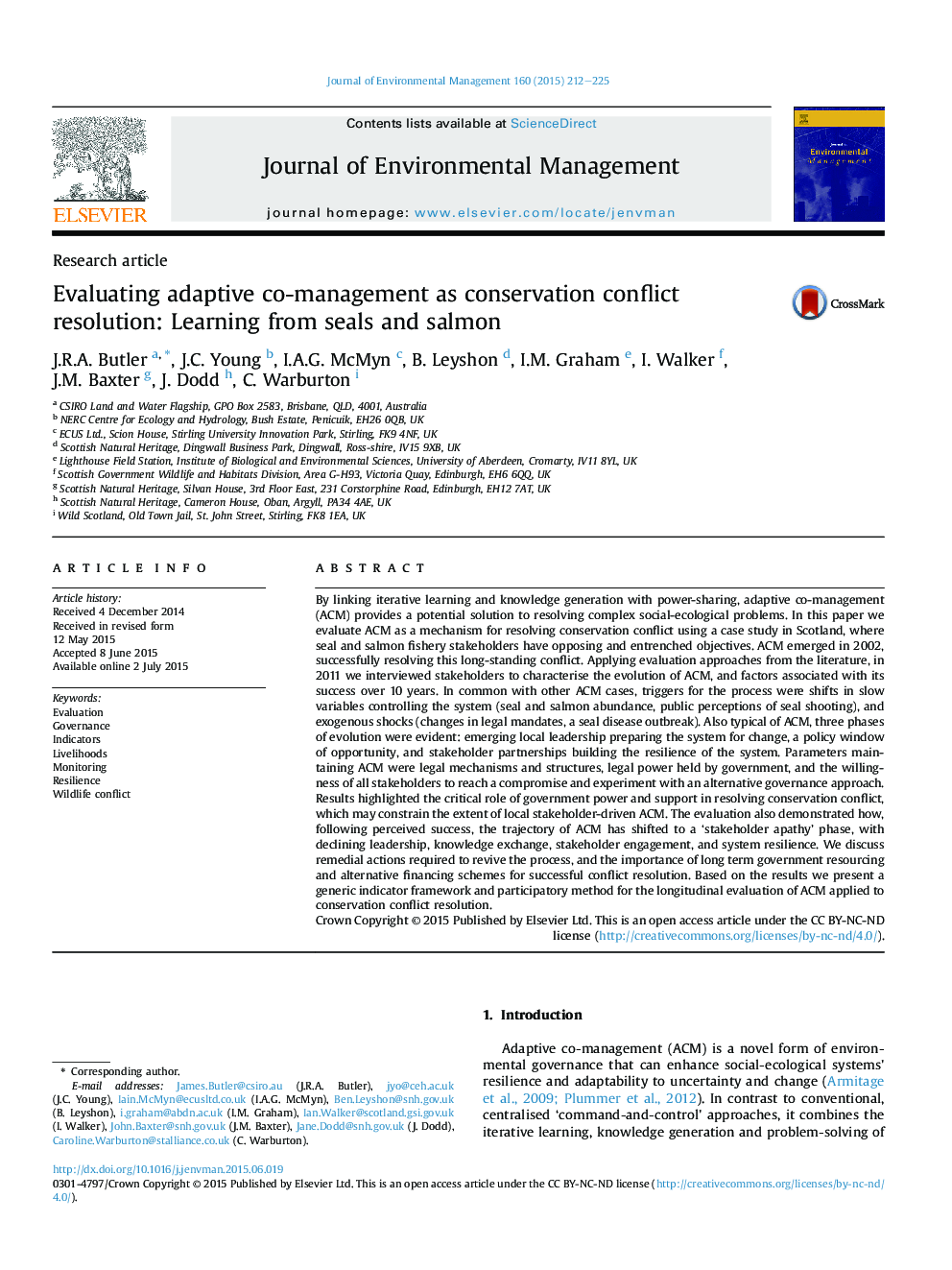| کد مقاله | کد نشریه | سال انتشار | مقاله انگلیسی | نسخه تمام متن |
|---|---|---|---|---|
| 7481825 | 1485252 | 2015 | 14 صفحه PDF | دانلود رایگان |
عنوان انگلیسی مقاله ISI
Evaluating adaptive co-management as conservation conflict resolution: Learning from seals and salmon
ترجمه فارسی عنوان
ارزیابی مدیریت هماهنگ سازمانی به عنوان حل مسئله حفاظت از محیط زیست: یادگیری از مهر و ماهی آزاد
دانلود مقاله + سفارش ترجمه
دانلود مقاله ISI انگلیسی
رایگان برای ایرانیان
کلمات کلیدی
ارزیابی، حکومت، شاخص ها، معیشت، نظارت بر، انعطاف پذیری، مناقشات حیات وحش،
موضوعات مرتبط
مهندسی و علوم پایه
مهندسی انرژی
انرژی های تجدید پذیر، توسعه پایدار و محیط زیست
چکیده انگلیسی
By linking iterative learning and knowledge generation with power-sharing, adaptive co-management (ACM) provides a potential solution to resolving complex social-ecological problems. In this paper we evaluate ACM as a mechanism for resolving conservation conflict using a case study in Scotland, where seal and salmon fishery stakeholders have opposing and entrenched objectives. ACM emerged in 2002, successfully resolving this long-standing conflict. Applying evaluation approaches from the literature, in 2011 we interviewed stakeholders to characterise the evolution of ACM, and factors associated with its success over 10 years. In common with other ACM cases, triggers for the process were shifts in slow variables controlling the system (seal and salmon abundance, public perceptions of seal shooting), and exogenous shocks (changes in legal mandates, a seal disease outbreak). Also typical of ACM, three phases of evolution were evident: emerging local leadership preparing the system for change, a policy window of opportunity, and stakeholder partnerships building the resilience of the system. Parameters maintaining ACM were legal mechanisms and structures, legal power held by government, and the willingness of all stakeholders to reach a compromise and experiment with an alternative governance approach. Results highlighted the critical role of government power and support in resolving conservation conflict, which may constrain the extent of local stakeholder-driven ACM. The evaluation also demonstrated how, following perceived success, the trajectory of ACM has shifted to a 'stakeholder apathy' phase, with declining leadership, knowledge exchange, stakeholder engagement, and system resilience. We discuss remedial actions required to revive the process, and the importance of long term government resourcing and alternative financing schemes for successful conflict resolution. Based on the results we present a generic indicator framework and participatory method for the longitudinal evaluation of ACM applied to conservation conflict resolution.
ناشر
Database: Elsevier - ScienceDirect (ساینس دایرکت)
Journal: Journal of Environmental Management - Volume 160, 1 September 2015, Pages 212-225
Journal: Journal of Environmental Management - Volume 160, 1 September 2015, Pages 212-225
نویسندگان
J.R.A. Butler, J.C. Young, I.A.G. McMyn, B. Leyshon, I.M. Graham, I. Walker, J.M. Baxter, J. Dodd, C. Warburton,
